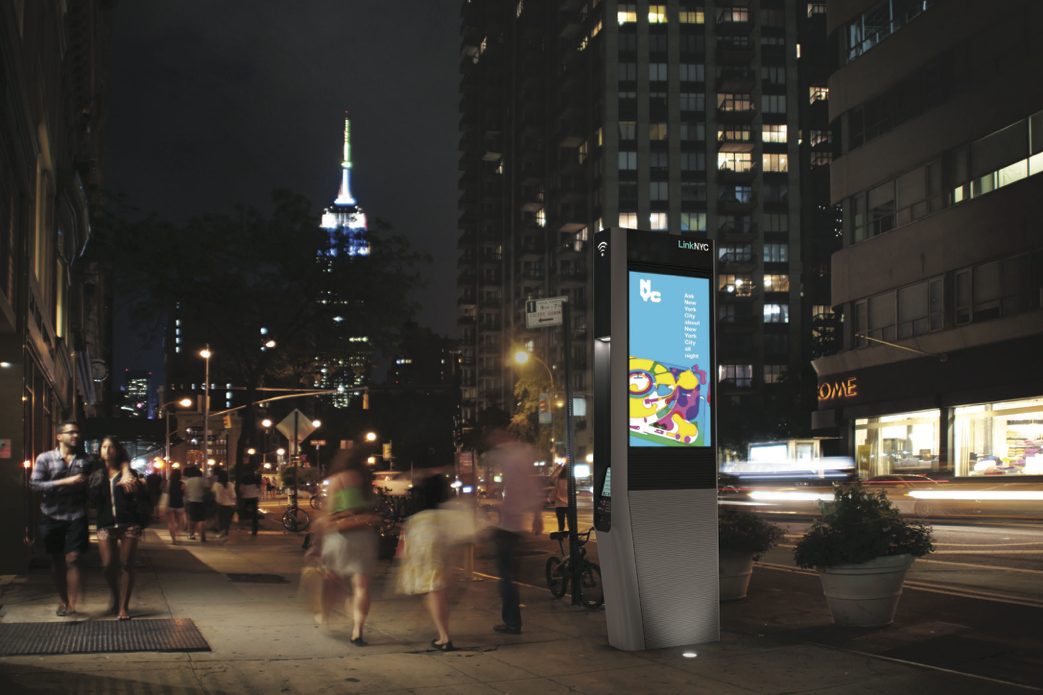

We may earn revenue from the products available on this page and participate in affiliate programs. Learn more ›
Even if you’ve spotted a payphone in the wild recently, it’s probably been a while since you’ve actually reached out and touched one. But that may soon change: New York City is planning on replacing the old public phones with 21st century equivalents, which will even provide free, superfast Gigabit Wi-Fi Internet access.
The project, called LinkNYC, calls for the construction of up to 10,000 “Links” throughout all five of New York’s boroughs, “thousands” of which will provide free Wi-Fi. CityBridge, the consortium behind the units’ development says that the Wi-Fi will be “more than 20 times faster” than the average New Yorkers’ home Internet access, capable of downloading a two-hour HD movie as fast as 30 seconds. The first units are scheduled to go into service by the end of 2015. In addition to providing fast and secure Wi-Fi, Links will also offer the ability to make free phone calls anywhere in the U.S. (including 911 and 311), access to city services and directions, and a free charging station for mobile devices. The units themselves, which have been created by industrial design team Antenna Design, are even compliant with the Americans with Disabilities Act.
All of which sounds well and good, but this is the point where every savvy citizen starts wondering where the catch is. How does New York City intend to pay for such a major project?
Through ads, naturally. Take a look at Link and you’ll see large, colorful displays (in the commercial-area version that it mainly touts, as opposed to the slim-profile residential-area flavor). Those screens will be used to display advertising, though they can also be utilized by the city to distribute public information, such as in the case of an emergency. Those ads are also targeted to generate more than $500 million in revenue for New York City, which helps obviate the need for taxpayer involvement.

Ads may not be a big deal, especially to New Yorkers who already find themselves besieged by advertisements on billboards, the city’s innumerable taxi cabs, and so on. The bigger concern may be security. LinkNYC says that it plans to offer an encrypted network connection between users’ devices and the hotspot, as well as preventing devices on the hotspot from talking to each other. But it appears the Link project will incorporate an Android tablet, and that platform has already proved to be an attractive target for malware.
There’s also a question of whether NYC’s municipal Wi-Fi will run into some of the same roadblocks encountered by other cities attempting to bring Internet to its citizenry. San Francisco, for example, attempted a similar project a decade ago, which was eventually cancelled; a much less ambitious project was launched in 2013. LinkNYC would certainly be the biggest endeavor of its kind, and its success could pave the way for similar ventures around the country and world.
As for Clark Kent? He can always change in a revolving door.
